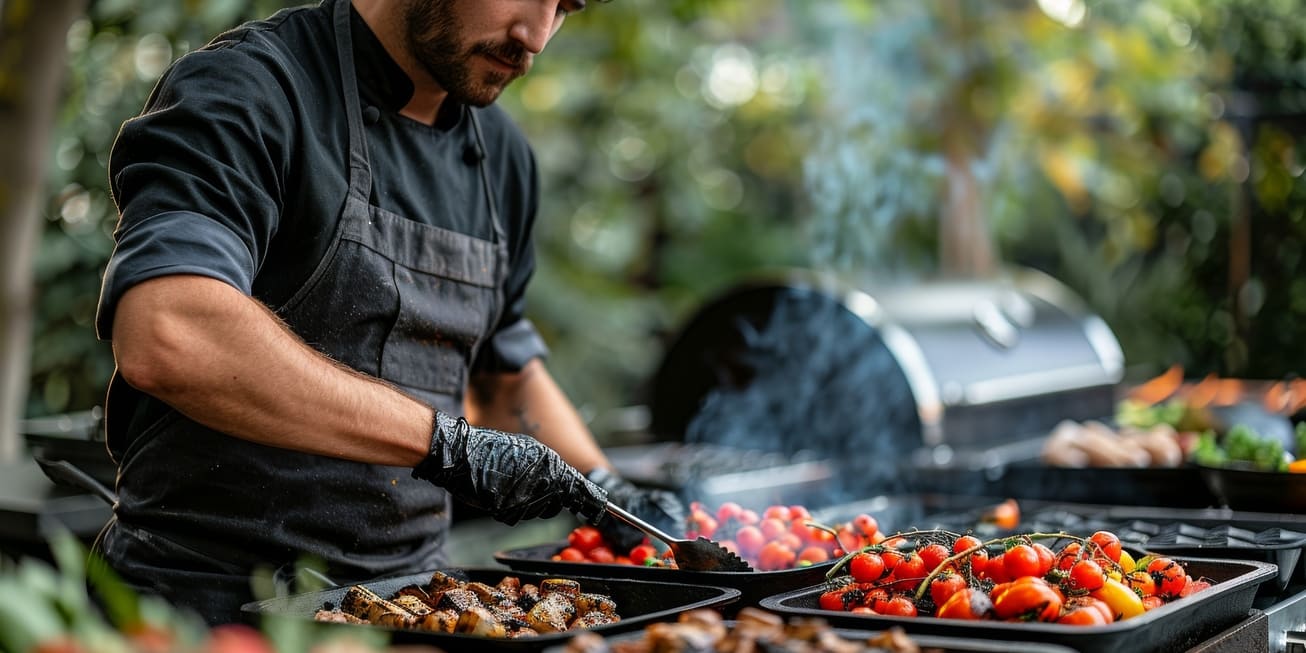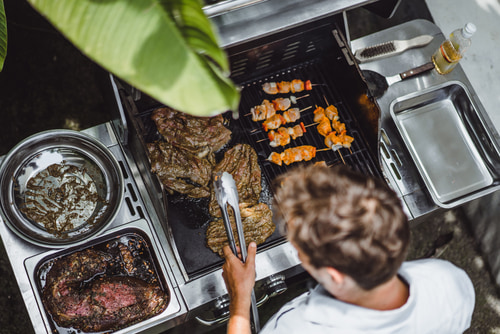Blog
How to grill without oils and fats

Grilling is one of the most popular and healthiest cooking techniques for preparing meats, fish, and vegetables. However, many people still believe it’s necessary to use oils or fats to prevent food from sticking, enhance flavor, or retain moisture. The truth is that, with the right utensils and a few tricks, it’s absolutely possible to grill your food without adding a single drop of fat. In this article from KuokoKitchen, we’ll show you how to do it without sacrificing flavor or texture.
Non-Stick Grill
The first step to cooking without oils is to have a high-quality grill. Non-stick grill plates and pans are an excellent option, as they prevent food from sticking during cooking. They are made from materials like teflon, ceramic, or titanium, which allow you to grill with zero fat without compromising the final result.
Additionally, if you use a well-seasoned cast iron grill, you can also avoid the use of oils. These tools, when properly maintained, develop a naturally non-stick surface with continued use.
Preheat the Surface
One of the most common mistakes is placing food on a grill that isn’t hot enough. When the surface reaches the right temperature, it creates a sort of instant seal between the food and the grill, which prevents sticking.
Before you start cooking, make sure to preheat the grill for at least 5–10 minutes. This not only helps prevent food from sticking but also enhances flavor by achieving a more even browning.
Quality Utensils
In addition to a good grill, there are other utensils that can help you cook without oil. Stainless steel tongs, for example, allow you to handle food without breaking or tearing it, which is crucial when you’re not using fats. You can also use silicone brushes to apply marinades or lemon juice, adding flavor without unnecessary calories.
Another very useful tool is reusable baking paper or grill mats. These surfaces make it easy to cook even the most delicate ingredients without sticking—and without oil.

Marinades or Natural Juices
Although the idea is to avoid added fats, that doesn’t mean you have to cook completely dry. You can marinate your ingredients in advance using oil-free blends: balsamic vinegar, lemon juice, low-sodium soy sauce, spices, or aromatic herbs like rosemary or thyme. These alternatives not only prevent food from drying out, but also add an extra layer of flavor.
You can also take advantage of natural fruit juices like pineapple or orange to marinate white meats or fish. These juices bring both acidity and sweetness, while helping to tenderize the meat.
Choosing the Right Ingredients
Some foods are naturally juicier or fattier, making them better suited for oil-free cooking. Salmon, for example, has enough fat content to cook well without any added oils and still remain tasty. The same goes for lean meats like chicken, as long as you avoid overcooking.
As for vegetables, many—such as zucchini, bell pepper, or eggplant—can be grilled perfectly without any oil. Simply slice them thinly and make sure the grill is hot enough.
Cleaning and Maintenance
For this technique to work properly, it’s essential to keep your utensils clean and in good condition. A dirty grill with burnt residue will cause food to stick—even if it’s non-stick. After each use, clean the surface with an appropriate brush, and if possible, dry it with a cloth to prevent rust.
For cast iron grills, make sure to dry them completely and apply a light layer of vegetable oil to preserve the natural non-stick coating, without affecting future oil-free cooking.
Grilling without oils or fats is totally achievable and healthy if you have the right tools and apply the correct techniques. From choosing a good non-stick surface to using natural marinades, the options are both varied and accessible. The key is to care for your utensils, respect cooking times, and dare to experiment with fresh, flavorful ingredients. With these tips, you’ll not only improve your eating habits, but also enjoy a lighter, more practical, and delicious way of cooking.


